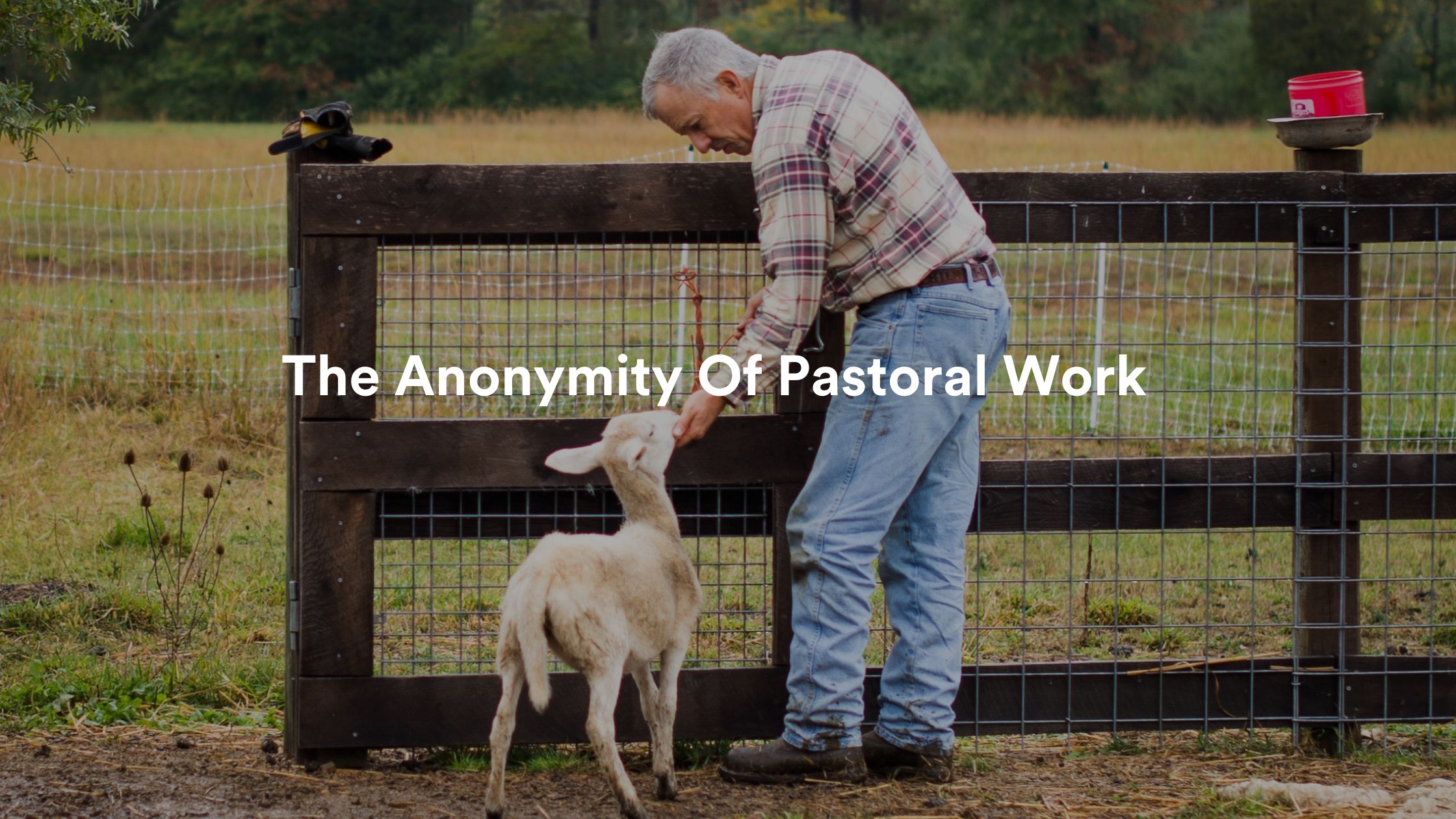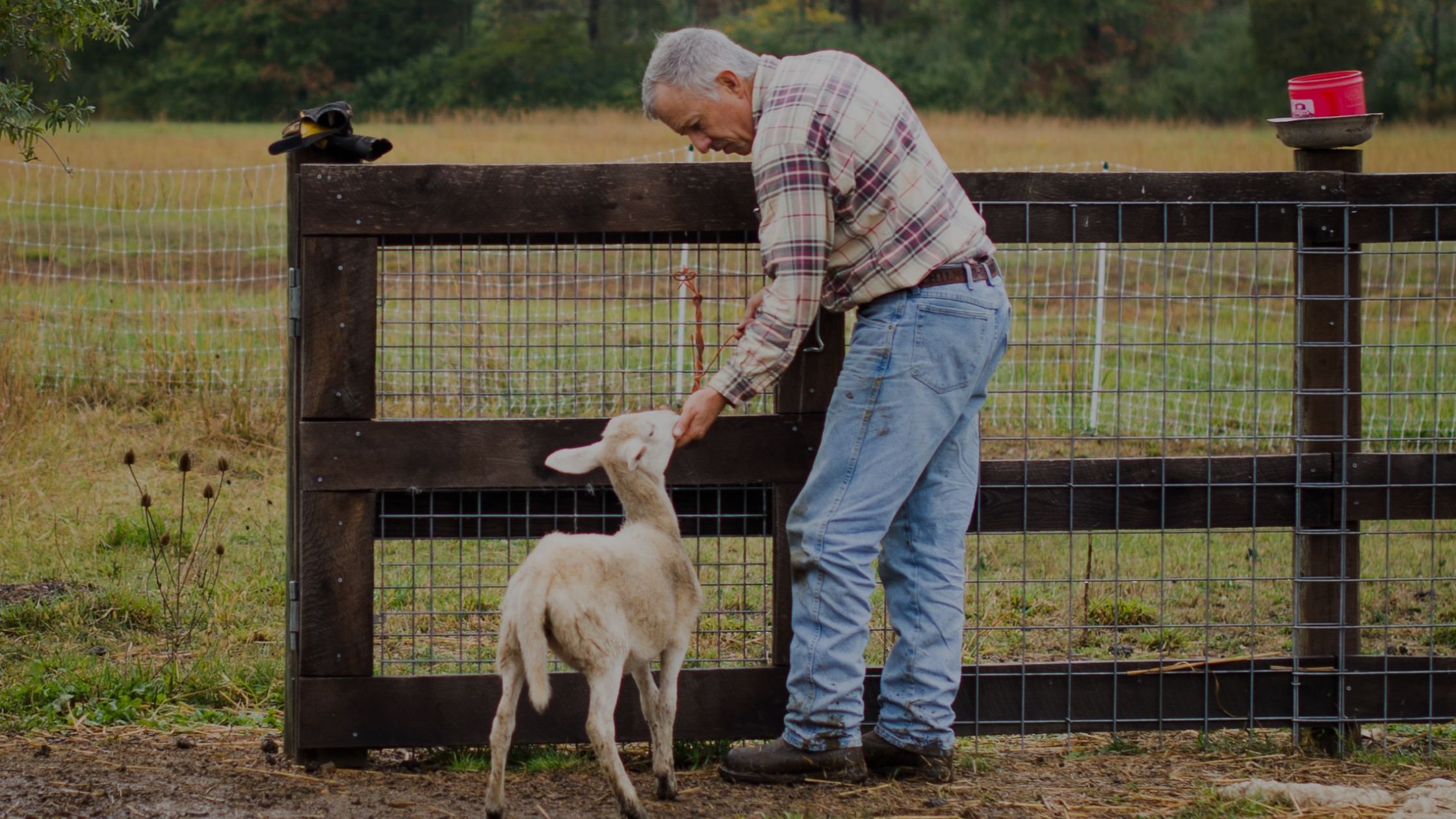
In our modern age, talk of pastoral work as anonymous work seems like a stretch. Maybe the pastor in a rural town on a dusty road is anonymous, but pastoring seems to be about as public as you can get these days. We live in a time when pastors are out front, obvious, visible. Many encourage us to leverage social media to minister to people (at best) or build a platform for ourselves (at worst). I mean, we live in the age of the celebrity pastor, so how can pastoral work ever be anonymous?
And even if you push aside the deadly traps of fame and notoriety, isn’t the pastor of the smallest church in the smallest town on the smallest country road still a public figure? He might not be known the world over—though, with an internet connection, what’s stopping him?—but he’s a known figure in his community. It’s true. We have to acknowledge that pastoral work is public work. People know us.
But, what I want to say here is that embracing anonymous aspects of pastoral work is a healthy antidote to the temptations and pressures that the public nature of pastoral work brings. For this, I want to utilize the image of the farm that Paul often employed. For instance, he wrote:
So neither he who plants nor he who waters is anything, but only God who gives the growth. He who plants and he who waters are one, and each will receive his wages according to his labor. For we are God’s fellow workers. You are God’s field, God’s building. (1 Corinthians 3:7–9, ESV)
Paul used this truth to combat the divisiveness in the Corinthian church—division caused, at least in part, by a partisan loyalty to personalities. Some said they were on Team Paul or Team Apollos or Team Cephas or even—for the ultra-spiritual—Team Christ (1 Corinthians 1:12).
To defend against this immaturity, Paul employed the image of the field and farmer. He saw the church as God’s field, God’s building (1 Corinthians 3:9). And those who tended the field—men like Apollos, Peter, and himself—were mere workers employed by God. The only one in the equation that Paul considered to be something was God himself: “So neither he who plants nor he who water is anything, but only God who gives the growth” (1 Corinthians 3:7).
The pastor or apostle or evangelist is—in Paul’s mind—a mere footnote to the work God is doing. God is the one giving the growth, and he uses various servants to cultivate his field so he can produce a crop. This means that good pastoral work has a tinge of anonymity. Like farmers tending a landowner’s field, we do work that is often unseen, we are there for the service of the field, and we cannot produce fruit on our own. Let’s consider:
Because Much Pastoral Work Is Unseen
Pastoral work is often anonymous in that so much of it is unseen. The farmer arises before dawn and works in the solitude of his field with a bountiful table in his mind’s eye. And the pastor labors in the quiet of his study and in private conversations with an aim toward fruitfulness. In the stillness, he envisions Christ-honoring sermons, devoted disciples, and strong corporate worship. He longs for fruit, and, like the good farmer, he is willing to work hard outside the spotlight of the church for the good of the church.
In his long-form poem The Farm, Wendell Berry (himself a farmer) wrote:
You will work many days
No one will ever see;
Their record is the place.
For many a pastor, the record of our work is hard to quantify. What have we accomplished? What have we done with our minutes and hours, days and weeks, years and decades? For Berry, the fact the farm still exists is the record of the farmer. Without his tending and care, the farmlands would be overrun by the wildness of nature. And for many pastors, the record of their work is not bound up in books written or podcasts recorded but in the presence of the little local church they serve. Its existence is the record- -and God sees it!
This must be a comfort to the pastor who has tired himself with the ingloriousness of the calling. Boldly declaring the word seems appealing to anyone, but what about the hours of study and preparation? Making a real difference in people’s lives sounds great, but what about the betrayals and accusations that inevitably arrive? Leading a group of God’s people to greener pastures looks invigorating, but what about the resistance and apathy that slows all progress? These unseen and (often) unreported facets of the pastoral life require a farmer-like persistence, a willingness to toil through the weeds and pests and hard soil that is bound to come. In the dark, unseen, the pastor must work.
Because The Church Is More Important Than The Pastor
Pastoral work is often anonymous in that the church is more important than the pastor. Christ’s unfathomable love for his church should stimulate the pastor to take a back seat to the beauty of Christ’s bride. He is not of more importance than the church but is instead part of the very church for whom Christ died. He knows that the people belong not to the pastor but to God—they are “the sheep of his pasture” (Psalm 100:3). The good pastor knows that Jesus died to create the church for himself, not to create ministry for the pastor.
The good farmer serves his fields in a similar way, knowing that he exists to aid the field. My above-mentioned poet, Wendell Berry, also wrote many novels. In one of them, while describing a model farmer in a small town, he wrote, “he was the farm’s farmer, but also its creature and belonging. He lived its life, and it lived his; he knew that, of the two lives, his was meant to be the smaller and the shorter.” Any pastor worth his salt has a similar perspective. He wishes more for the endurance of his church than the endurance of his teachings. He would rather the churches he pastored go on to further fruitfulness than his books or podcasts or teachings go on after he retires. He knows that, between his life and the church’s, his is meant to be the smaller and shorter.
So the good pastor awakens to this truth. He is there for the success and health of the church. The people are not there to serve his needs, build his platform, or support his ministry. He is there to serve and build up and support them. He is not an influencer with followers but a follower of Christ because he’s been influenced by Christ. And, like a good farmer knows he belongs to the field, the good pastor believes his life is not his own, that he’s been bought at a price, and that his God has placed him in his field to work and tend it.
Because No Pastor Produces Results By Himself
Pastoral work is often anonymous because no pastor produces results all by himself. What I mean here is that when credit is doled out for spiritual growth in a person’s life, or salvation in another’s, a pastor can never claim the credit as his own. Even in the rare case that no one else is involved, it is the Spirit who gets the job done.
So the plowman and the thresher work together in the hope of sharing in the crop (1 Corinthians 9:10). And a good pastor works with others with the aim of reaping harvests for God’s kingdom. As Paul said, it is “neither he who plants nor he who water (who) is anything, but only God who gives the growth (1 Corinthians 3:7). We are all working together as one, and each will receive his wages according to the work he’s done (1 Corinthians 3:8). We are God’s fellow workers (1 Corinthians 3:9).
Can we not understand this in our modern age? People bounce from city to city and church to church. It is becoming rarer to find anyone over the age of twenty who has only been part of one local church. And, as people move from pastor to pastor, teacher to teacher, emphasis to emphasis, congregation to congregation, book to book, and podcast to podcast, planting and watering occur. Just because you are the pastor who most recently “crushed it” and helped them along in their walk does not mean you got them from point A to wherever they are today. You are merely one messenger among many who God has employed to care for his field.
And though many bemoan the ultra-accessibility of various pastors and Bible teachers the world over—who among us wasn’t replaced during the pandemic’s online church days by at least some in our congregation?— perhaps we should celebrate it more than we do. Perhaps it can beat down into our brains that we are merely another anonymous worker tending our little row in God’s field for God’s glory.
And this farming perspective is a gift that rescues pastors from the holy-man syndrome that tells us we must be the hero of the story. No, we are merely working the dirt, tending the crop, and reaping the harvest. And, as we willingly embrace the anonymous and unglamorous nature of the work, our Father in heaven smiles, knowing he has found in us men who have gotten the point.
“Before You start each day, the place
Is as it is, and at
The day’s end, it is as
It is, a little changed
By work, but still itself,
Having included you
And everything you’ve done.
And it is who you are,
And you are what it is.“













